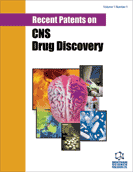Abstract
Background: Several studies support the evidence that the endocannabinoid system and cannabimimetic drugs might have therapeutic potential in numerous pathologies. These pathologies range from neurological disorders, atherosclerosis, stroke, cancer to obesity/metabolic syndrome and others.
Methods: In this paper we review the endocannabinoid system signaling and its alteration in neurodegenerative disorders like multiple sclerosis, Alzheimer’s disease, Parkinson’s disease and Huntington’s disease and discuss the main findings about the use of cannabinoids in the therapy of these pathologies.
Results: Despite different etiologies, neurodegenerative disorders exhibit similar mechanisms like neuro-inflammation, excitotoxicity, deregulation of intercellular communication, mitochondrial dysfunction and disruption of brain tissue homeostasis. Current treatments ameliorate the symptoms but are not curative. Interfering with the endocannabinoid signaling might be a valid therapeutic option in neuro-degeneration. To this aim, pharmacological intervention to modulate the endocannabinoid system and the use of natural and synthetic cannabimimetic drugs have been assessed. CB1 and CB2 receptor signaling contributes to the control of Ca2+ homeostasis, trophic support, mitochondrial activity, and inflammatory conditions.
Conclusion: Several studies and patents suggest that the endocannabinoid system has neuro-protective properties and might be a target in neurodegenerative diseases.
Keywords: Endocannabinoid system, endocannabinoids, cannabinoid receptors, neurological disorders, multiple sclerosis, Alzheimer's disease, Parkinson's disease, Huntington's disease.
 67
67





















